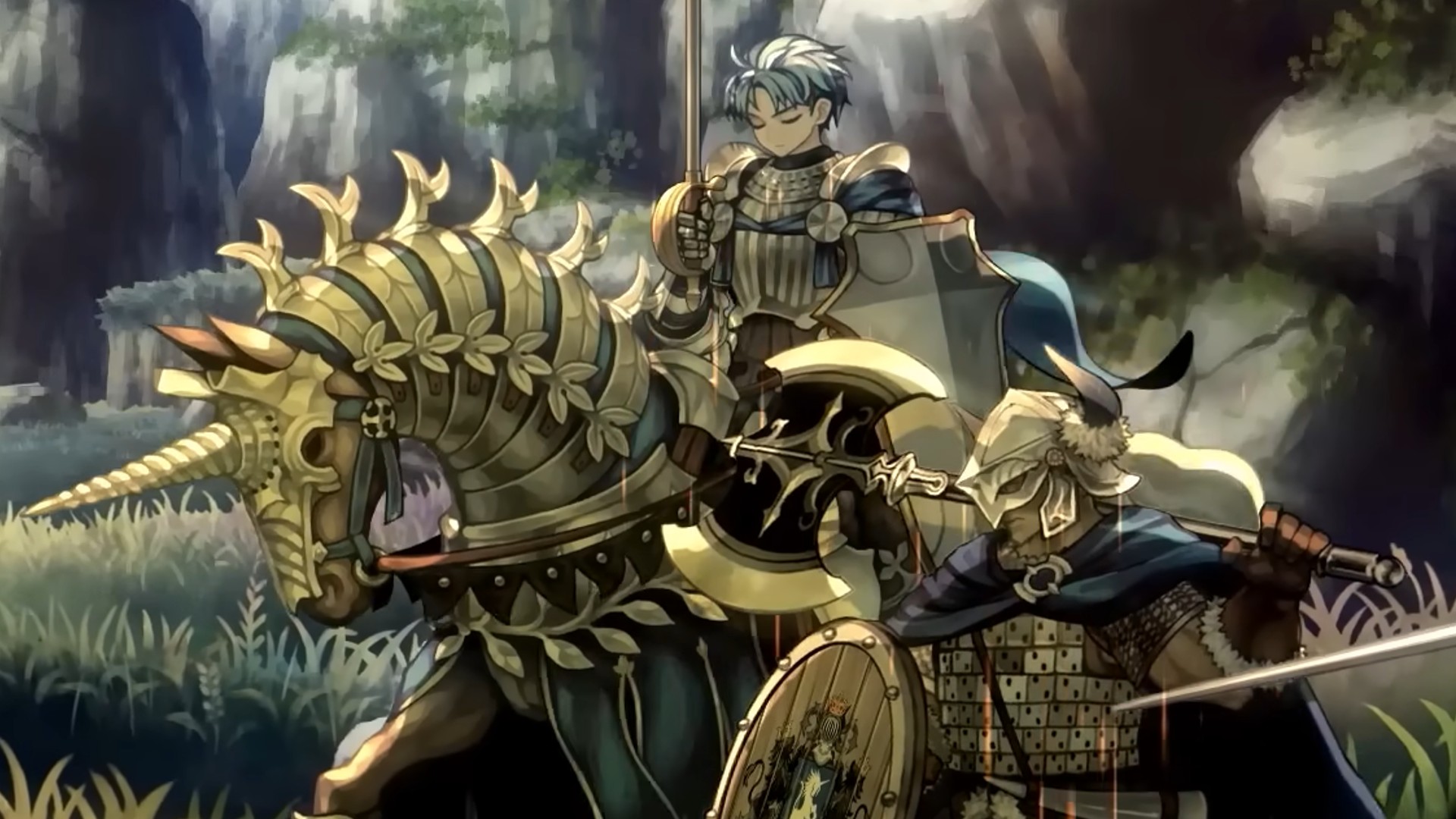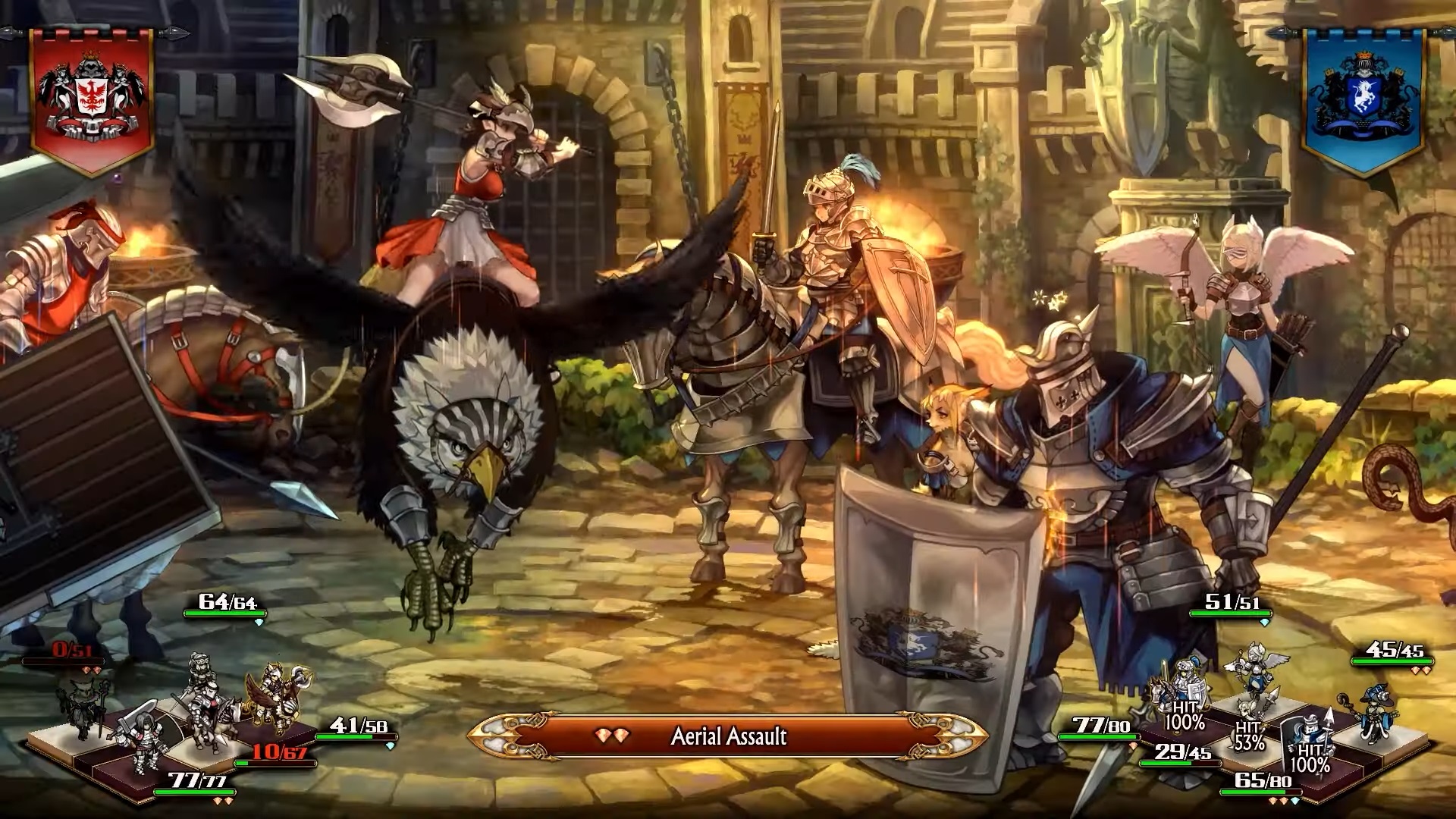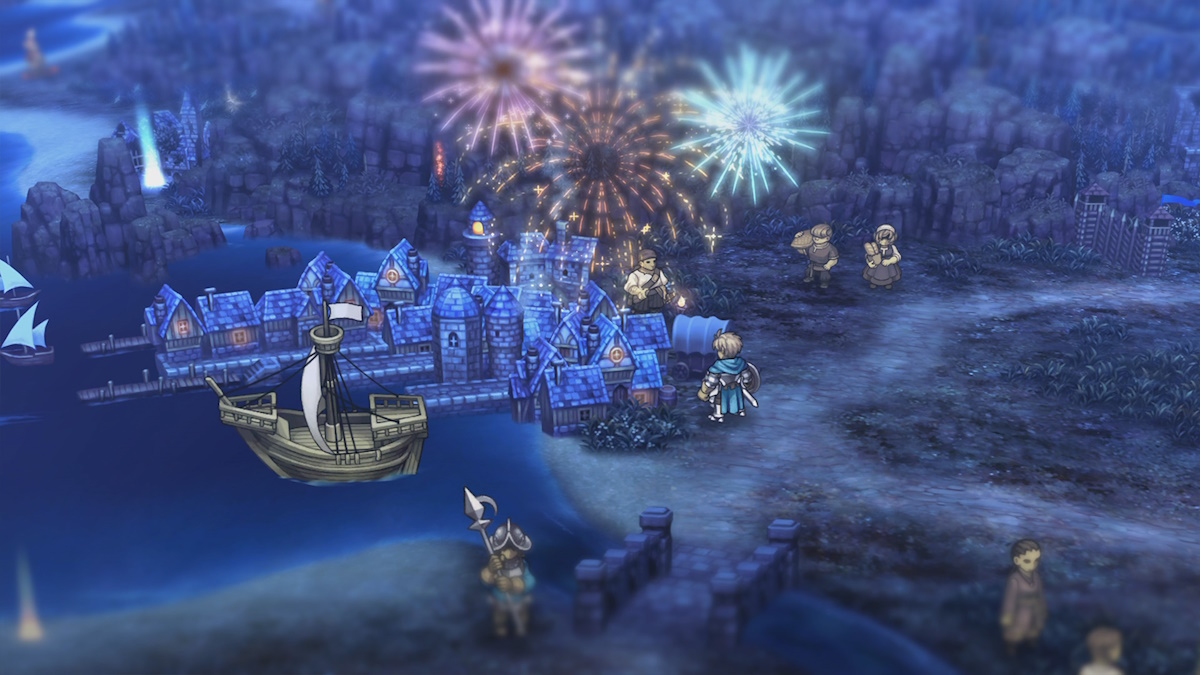Strategy RPG Unicorn Overlord is my GOTY so far, and I knew it would be from the moment I was up until 1am in a 3-hour battle hopelessly under-leveled
Opinion | Unicorn Overlord is incredibly intense, if you want it to be

Unicorn Overlord has hooked me like a fish. Vanillaware's gorgeous strategy RPG has already eaten over 72 hours of my life, and I've only just started liberating the third of five nations, by which I mean I am literally one battle into elf land. (Ed. note: This is an Austin problem; I am at the same place with less than 20 hours played.) When I'm not playing this game, I am thinking about playing this game, or indeed finding excuses to write about this game so I can think about it while at work.
I am deliberately slow-rolling it, knowingly over-analyzing every strategic decision and obsessing over itemization choices, just to make it last longer. It's a humongous game yet I'm rationing it like it's my last coconut on a deserted island. So far, it's my 2024 GOTY by a country mile, and it has been ever since an especially intense battle much earlier in the game which had me burning the midnight oil in a three-hour slugfest while hopelessly under-leveled.
This was the first battle where I almost immediately realized that I was screwed
I'll try to stick to the high-level mechanics of the battle so I don't spoil everything or ramble forever. Let me just paint a basic picture. It was one of the early Drakenhold missions where you push to liberate multiple areas all at once, one of the more complex and difficult levels for this stage of the game. There are three main targets: a garrison to the east, a town to the south, and another town just to the southwest. And yes, I have all of this memorized after staring at the map for so long.
Each point is defended by different types of forces, mostly a mix of flyers and archers and tanky infantry, and the eastern garrison is especially far away, to say nothing of a sub-base on the way there which can spawn enemies near your starting base. Divide and conquer is the name of the game, but that's not as simple as it sounds, especially when you make things much harder on yourself. This was the first battle where I almost immediately realized that I was screwed and had to restart, and I can tell you now that it hasn't been the last. If I feel I've made a mess of things, I'll occasionally slam the big red do-over button in a heartbeat, though I am coming around to embrace and salvage failures, and learning to love it. That's part of the magic of this game.
A game of throws

I initially planned on taking the southern base, eastern sub-base, and the garrison in one go with split forces, but there was one problem I hadn't accounted for – because I hadn't run into it before. All the enemies were level 10 while I was just level 7 or 8 on average, with several characters still in the 4 - 5 range. It's all low-level stuff, but I basically brought a little league team to the high school playoffs. I've also been playing on the highest difficulty the entire game, which makes even minor level differences tougher to overcome. Favored matchups, like defended archers against flyers, weren't guaranteed wins anymore, so spreading my forces thin was a very bad idea. I had to reset and draw up a new battle plan concentrating everything on taking the garrison first so I could use it as a new base to assault the adjacent southern points, and even then it was a struggle.
I think that's why I've played it for over 40 hours in the past five days
I'm not going to walk you through the entire 200-minute battle step-by-step. The emotions that this experience elicited matter more than the moment-to-moment actions. It was a formative moment for my Unicorn Overlord playthrough, not just because it was my hardest encounter yet, but because it truly showed me what I find so engaging – so recommendable – about this game, and also reminded me why I tend to prefer higher difficulty settings in most games.
Even in Unicorn Overlord's easiest engagements, I'll pause combat for minutes at a time, fiddle with squad arrangements to eke out an extra 5% damage or health from a fight, and fine-tune each character's auto-battler programming for multiple contingencies. I'll hot-swap gold and XP-boosting accessories at the end of big battles to boost rewards, then quickly revert each character afterward since I've got my whole dang army's loadouts etched into my retinas at this point. To an extent, I will do all of this just for the fun of it, but deep down I also want a reason to optimize. I want a challenge to overcome – that's one of the core pillars of play that I always point to with video games. Unicorn Overlord has struck the perfect balance of motivating challenge and sandbox freedom, and I think that's why I've played it for over 40 hours in the past five days.
Sign up to the GamesRadar+ Newsletter
Weekly digests, tales from the communities you love, and more
Video games: pretty cool

That Drakenhold battle really put a spotlight on this. I spent over three hours bashing my head against a wall much taller than me, but the lessons were worth it, and I'm still pondering them as I enter elf land at least 40 hours later. It got me to ask the right questions. How do I distribute squads while also directing them in individual fights? How do I balance each squad leader's movement speed with their unique assist effects? How easily can my squads group up and bail each other out? When should I spend valor points on deploying new squads versus supporting the ones already on the field? And then there's the hardest question: when do I intentionally throw a squad into a bad matchup just to improve the odds for another squad's follow-up attack?
I look at my little anime army the same way I do my shelves of records and manga
Unicorn Overlord's secret sauce is how your characters play off each other like this. It is a bunch of beautiful systems interacting beautifully. One exceptional character can make a squad's worst matchup survivable, or turn a decent matchup into a blowout. The game is an ingenious distillation of countless fantasy war stories where a few standout heroes can totally swing a battle, but at the same time, it makes it overwhelmingly clear that you also just need some warm bodies to hold down the lines. And over time, as I've watched character story beats and put them in different squads and seen them gain new skills, I've gained newfound respect for even the humblest soldier and archer classes. It's the kind of tangible, agency-fueled characterization that only games can pull off, and I wouldn't trade it for anything.
The ultimate goal, for me, is to make every character exceptional, from the exclusive story units to stamped-out mercenaries. I can't give everyone the absolute finest weapons and shields and accessories, but I can give them all a strong role using the best equipment that I have, and I can always make their programming as smart as possible.
I'm a collector at heart, so I look at my little anime army the same way I do my shelves of records and manga – another big reason I find this game so compelling, no doubt. What can I do with this one? What would go nicely here? How many of these can I fit? Considerations like this are so much more fun than idly chucking my overpowered cavalry squad at everything and calling it a day, and this legendary (to me and me alone) Drakenhold fight very loudly showed me what happens if I get complacent. That's given the rest of my playthrough a type of bite that no other game has matched for me this year.

Austin has been a game journalist for 12 years, having freelanced for the likes of PC Gamer, Eurogamer, IGN, Sports Illustrated, and more while finishing his journalism degree. He's been with GamesRadar+ since 2019. They've yet to realize his position is a cover for his career-spanning Destiny column, and he's kept the ruse going with a lot of news and the occasional feature, all while playing as many roguelikes as possible.


